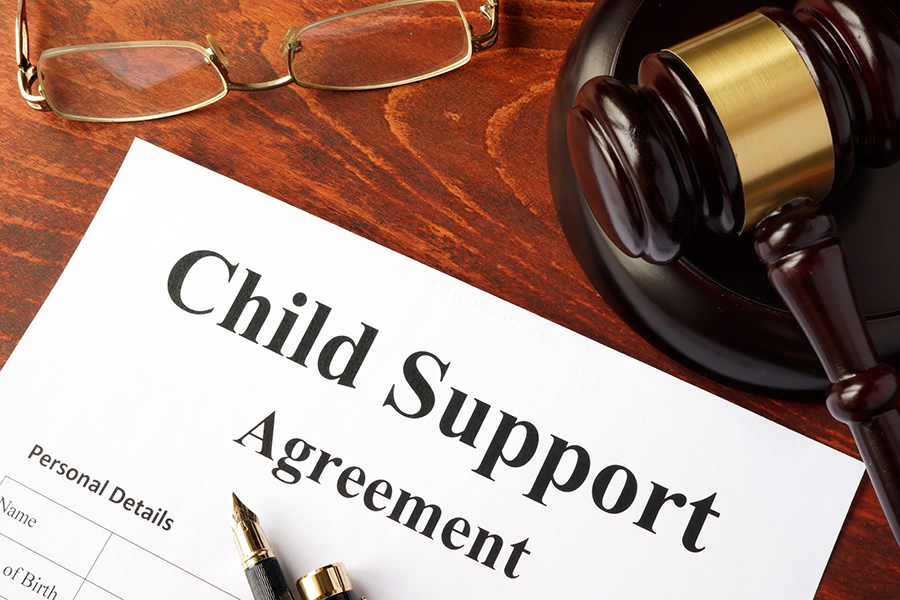Adoption creates a parent/child relationship with all the rights and responsibilities associated with that type of relationship. Adoption also severs any previously existing parent/child relationship. The new parent/child relationship can only be formed by the court. You will need to appear before the court to sign a written statement saying that you will act in all regards as the parent of the child and that you will also take on all of the responsibilities of parenthood.
In order to adopt, you must be an adult who is married with permission from your spouse, or single and not cohabitation with another person. In addition, the person/child that you plan to adopt must be at least 10 years younger than you. The court will look at the best interests of the child in making their determination as to whether they will allow you to adopt. The court may also order the Department of Child and Family Services (DCFS) to investigate and make a report to the court.
Consent must be obtained. Any person or institution whose consent is required (see below) must be given at least thirty (30) days notice. Although not complete, some examples of people who might need to be notified are:
- anyone who has filed a paternity action for the child and filed a notice of that action with the Department of Vital Statistics;
- any legally appointed guardian or custodian;
- your spouse, if applicable;
- a parent listed on the birth certificate; and
- a person who lives with the child and acts like the child’s parent.
Except as noted below, you will generally have to get written consent from at least one person. Although a person may not give consent until the child is at least 24 hours old. Consent may be given in front of a judge or given to an adoption agency. Once signed, consent cannot be revoked. As you might expect, the list of who may have to consent is very similar to the list of those you must notify and include the following:
- the person being adopted if he or she is over 12 years of age and mentally competent;
- both parents of a minor child if born within a marriage;
- the mother of a minor child if born outside of a marriage, and the father if:
- a court has ruled that he is the father,
- he has filed a voluntary declaration of paternity prior to the mother signing the consent of adoption,
- he has developed a strong relationship with the child and has taken some responsibility and/or shown some commitment for the child, or
- he has lived with the child for 6 months within the child’s first year and acted as though the child was his own.
- the adoption agency.
If someone does not agree with the adoption, they have a right to fight it. In order to do so, they must inform the court either by appearing at the hearing or by filing a written statement of their concerns within 30 days of being served notice of the adoption.
 You love your grandchildren and have spent a lot of quality time with them. You may have even cared for them while the parents worked, or when one or both parents had physical or personal problems they needed to deal with. This is not uncommon, as two earner households and the high cost of daycare often puts grandparents in the role of caretaker.
You love your grandchildren and have spent a lot of quality time with them. You may have even cared for them while the parents worked, or when one or both parents had physical or personal problems they needed to deal with. This is not uncommon, as two earner households and the high cost of daycare often puts grandparents in the role of caretaker.
A parentage relationship is established when you are the parent of a child whether biological or by a Court (i.e., adoption). You only have a parentage relationship when the relationship is legal. In other words, if the child is a result of a non-consensual relationship (i.e., rape) then the one forcing the relationship will not generally have any legal rights to the child.
Custody generally refers to the control over decisions made for the child and/or the place where the child lives, if the parents do not live in the same household. However, both parents have equal custodial rights until a Court order exists which establishes custody.
There are 2 different kinds of custody which may be shared in 3 main ways here in Utah. The two types of custody are:
Legal custody which goes to who has the ability to make important decisions concerning the children, and
Physical custody which goes to where the children will live.
As mentioned, each of the two types of custody may be shared in 3 different ways. This may be done differently for each type of custody:
Sole. Legal and/or physical custody may be given to one parent alone (with rights of visitation to the other).
Joint. In joint custody arrangements, both parents are involved. For instance, with joint legal custody, both parents would have a right to make the important decisions regarding the children such as education, religion and non-emergency medical care. This type of arrangement will only work where the parties get along very well and may communicate with each other often. Joint physical custody would entail moving the kids from one parent to the other for some amount of time as decided between the parties or the judge. However, the children must spend more than 110 nights each year in each home to call the arrangement “joint”.
Split. This situation involves more than one child and the children are split between the parents. For example, one will live with the mother and one will live with the father. This type of arrangement is advised only in rare circumstances, as it is rare that this would be in the children’s best interests.
Note, remember that an attorney will be able to answer the questions specific to your case. The information provided here is merely basic in nature and is no substitute for an actual attorney. If you have questions about your case, call TR Spencer & Associates, P.C. and speak with one of our experienced attorney's at: (801)-566-1884.
 When parents are separating or getting divorced, they usually argue over two things: money and children. Unfortunately, these arguments can get quite heated, and often are witnessed by the children themselves, to their great detriment.
When parents are separating or getting divorced, they usually argue over two things: money and children. Unfortunately, these arguments can get quite heated, and often are witnessed by the children themselves, to their great detriment.
Things to consider before hiring an Attorney
1. Your willingness to “Put it All Out There”;
2. Be Prepared to experience a higher level of stress;
3. Impact on Family and friends;
4. Impact on your employer.
Your willingness to “Put it All Out There.” is very important. If you as the client withhold information from your attorney, you may end up paying for it in the end. An attorney takes the information you provide, good and bad, and then formulates a strategy. If information is withheld, the strategy employed may be defective. When you hire an attorney a confidential relationship is created. Which means that the attorney will not disclose the information you tell him, unless it is necessary for your case or if he must in order to comply with state ethics rules. Therefore, you should tell your attorney the pros and the cons, so that he can best prepare your case.
Divorce is a very stressful part of many marriages unfortunately. The process can bring out very strong feelings of resentment, animosity, and sometimes even hatred. Be prepared to ask questions, so that your attorney can help you manage your expectations. An attorney can answer questions that may be causing a lot of the stress you are feeling. The unknowns felt by most during divorce can easily be answered. Just ask!
Your divorce will have an impact on your entire family. You should expect that your divorce may not only end your relationship with your wife, but also may end many other relationships as a result. Be prepared for unexpected change as best you can.
Your divorce may impact your employer. During the divorce process, the parties’ embark on the procedural process known as “Discovery.” Discovery requires that the parties disclose certain information initially without being asked. Later, more information may be sought that your employer may be required to provide. Through the tool of the subpoena, your employer may be required by law to provide your payroll information. Furthermore, the court may require that your retirement accounts be divided, which could impact your employer as well.
TR Spencer & Associates, P.C. can help you with your divorce. Give us a call and mention this article: 801-566-1884.

Guardianship's are typically set up when an adult is considered “incapacitated” in some manner. Persons are deemed incapacitated when they have trouble making decisions related to their everyday well-being. Under Utah Code Section 75-1-201 this means that the adult cannot process information correctly, cannot communicate his or her needs and is unable to fulfill basic necessities. If the inability to act significantly affects a person’s safety or health, the court may decide to appoint a guardian.

One of the hardest decisions that a judge is often called to make during a divorce case is who should get custody of a child. Usually, parents want what is in the best interest of their child.

In the state of Utah, when it comes to determining the amount of child support payments the family court makes the final decision. Generally, the court will refer to the state's child support guidelines to order an appropriate amount. The guidelines are intended to make child support fair and uniform across different cases.
If you are going through a custody dispute, you should know that it is your right to have the legal representation of your choice. A qualified custody lawyer can help with all aspects of a family law case and the general court process. For that reason, make sure you find the best one for your case. Here are some of the most important things to look for in any family law attorney.
Divorce and separation are undoubtedly challenging experiences, especially when children are involved. Establishing a custody agreement is a crucial step in ensuring the well-being of your children, providing a framework for shared responsibilities. However, what do you do when your ex isn't following the agreed-upon custody arrangement? In this blog post, we'll explore the steps you can take to address and resolve issues when your ex isn't adhering to the custody agreement.
Life circumstances can change unexpectedly, affecting family dynamics and the arrangements for custody, visitation, child support, or alimony. When significant changes occur, it may be necessary to modify existing orders to ensure they continue to meet the best interests of the children and the fair treatment of all parties involved. This blog post will provide an overview of the process of modifying existing orders in Utah.
 You love your grandchildren and have spent a lot of quality time with them. You may have even cared for them while the parents worked, or when one or both parents had physical or personal problems they needed to deal with. This is not uncommon, as two earner households and the high cost of daycare often puts grandparents in the role of caretaker.
You love your grandchildren and have spent a lot of quality time with them. You may have even cared for them while the parents worked, or when one or both parents had physical or personal problems they needed to deal with. This is not uncommon, as two earner households and the high cost of daycare often puts grandparents in the role of caretaker. When parents are separating or getting divorced, they usually argue over two things: money and children. Unfortunately, these arguments can get quite heated, and often are witnessed by the children themselves, to their great detriment.
When parents are separating or getting divorced, they usually argue over two things: money and children. Unfortunately, these arguments can get quite heated, and often are witnessed by the children themselves, to their great detriment.

